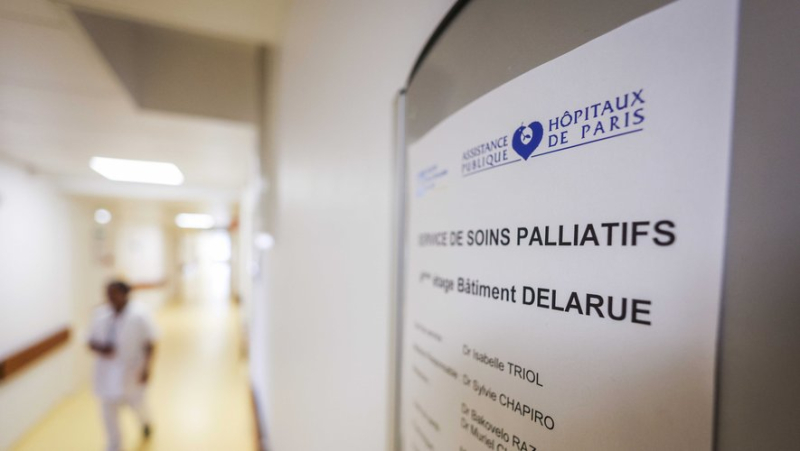End of life bill: a calm first week in the Assembly, but unresolved concerns

Towards a new French model of end-of-life support. MAXPPP – Luc Nobout
A first week of hearings launched work in Parliament on the end-of-life bill. These discussions have shown the long road that remains to be accomplished towards a consensus on this highly anticipated societal text.
The bill on the end of life began its substantive journey in the National Assembly during a dense first week of hearings crossed by numerous concerns, among its opponents but also among his supporters, who all count on the deputies to review the copy.
At the opening of the work of the special commission, responsible for a month of examining the government's text, the Minister of Health Catherine Vautrin welcomed on Monday that’ rsquo;a debate "important"begins in Parliament. Throughout the week, concluded this Saturday with a new session of the Citizens' Convention which spoke last year on the subject, the 71 members of the special commission were able to hear representatives of the medical profession , cults, associations or even psychologists, philosophers, former ministers and parliamentarians.
"Questions, concerns…"
The general rapporteur Olivier Falorni congratulated the AFP on the "high level of reflection of the debates" far from "the virulence which marked the debate on abortion, the abolition of the death penalty or marriage for all". He does not deny that the subject raises "questions, concerns", but "which societal text has not raised any ?".
The series of hearings allowed participants to highlight their main concerns, motivated by a text which intends to offer certain patients the means of committing suicide and, when they are incapable of carrying out the fatal gesture, to do so. for them.
"Neither a copy and paste, nor a template"
A "assisted dying" reserved for adult patients, born in France or residing in the country for a long time, and able to clearly express their wishes. This is "neither a copy and paste of foreign legislation, nor a euthanasia model", Catherine Vautrin insisted on Saturday before the Convention citizen, insisting on the "strict conditions" posed by the text.
The leaders of the main religions notably repeated their "concerns" in the face of a project which, according to them, could weigh on the most vulnerable by letting them think that they "are too much".
Power to the doctors
The doctors wanted the text to provide for the possibility of a collegial decision on whether or not to grant assistance in dying. As it stands, the bill intends "to bring together several health professionals to provide a response" to the patient requesting assistance in dying , recalled the president of the Order of Physicians, François Arnault. "But there is a specific moment when it’s the doctor who decides, and that’ is something that needs to be improved"< /em>, he pleaded.
A request relayed by the French Society for Support and Palliative Care (Sfap). "It’is a law that gives too much power to doctors", regretted its president Claire Fourcade, to the ;rsquo;AFP.
"Blur"
Hospital federations have warned that the possibility of assisted suicide raises several challenges. Associations firmly opposed to the text have criticized "a form of euphemization with this formula + help in dying +, which conceals assisted suicide and & rsquo;euthanasia", according to Tugdual Derville, spokesperson for Alliance vita. He also denounced the "vague and subjective" nature of two major eligibility criteria: "The vital prognosis committed in the medium term and the unbearable psychological suffering". For the pro-life movement, they are unverifiable and likely to open a "Pandora's box".
The first point is also contested, for different reasons, by the Association for the Right to Die with Dignity (ADMD), which campaigns for the freedom to choose one's end of life. "With this medium-term condition, a person suffering from a neurodegenerative disease would not be eligible, even if their suffering is unbearable", its president, Jonathan Denis, explained to AFP. Consequence, according to him: "All these people will continue to go to Switzerland or Belgium".
In the hemicycle on May 27
Everyone now hopes that the text will evolve with amendments from parliamentarians. From May 13, the special commission will get to the heart of the 21 articles. Then the hemicycle will take up the revised project, from May 27.
Saturday, Catherine Vautrin expressed "the wish that the debates in the Assembly and the Senate reflect the commitment, dignity" having marked the Citizens' Convention, whose work Emmanuel Macron also praised on Friday.




